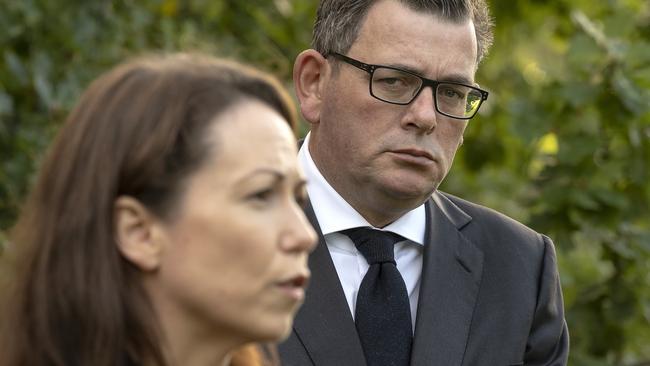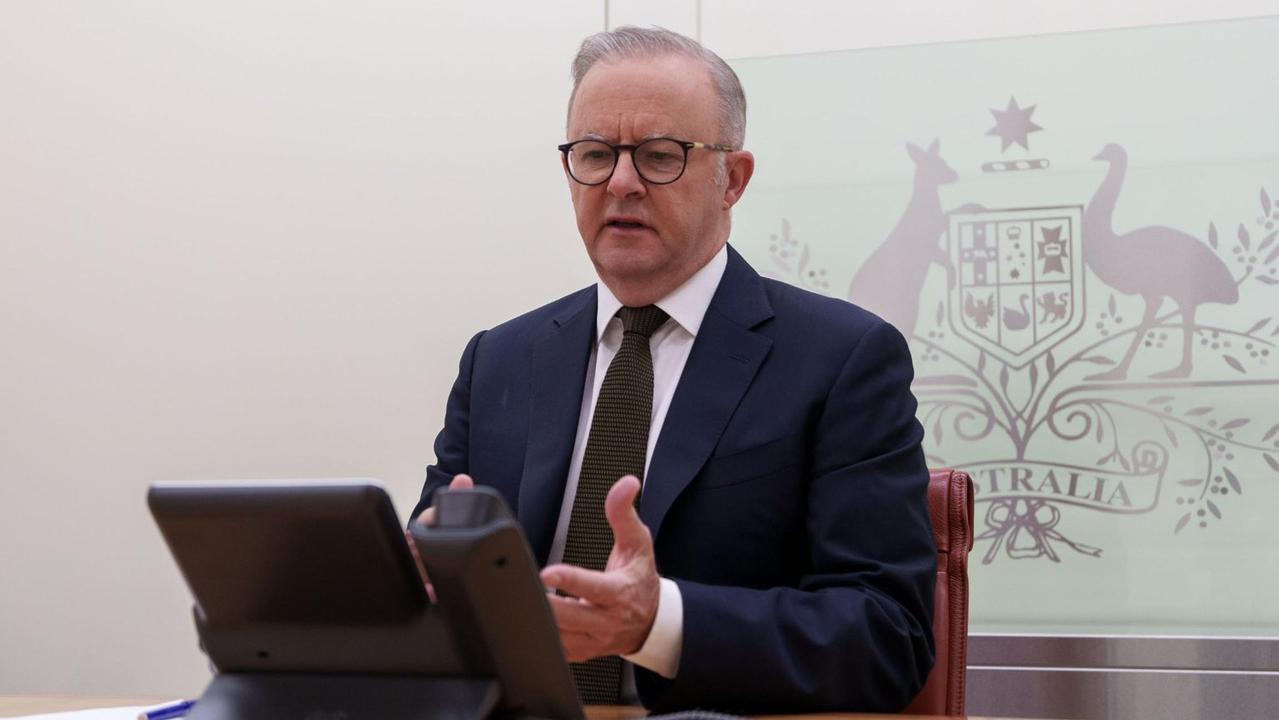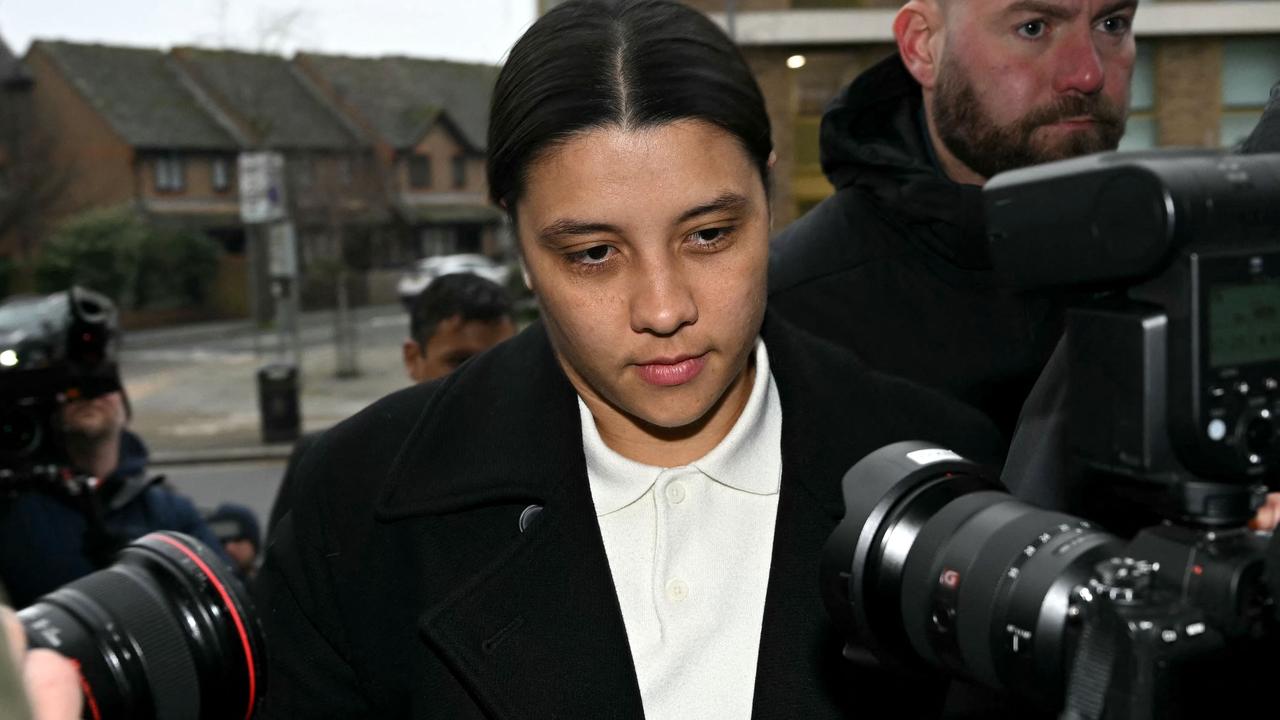Victoria to lift age of criminal responsibility from 10 to 12 ahead of national meeting
Victoria will lift the age of criminal responsibility from 10 to 12, with plans to increase it to 14 by 2027.

Victoria will lift the age of criminal responsibility from 10 to 12, with plans to increase it to 14 by 2027, as other states consider similar measures ahead of a meeting of state and federal attorneys-general on Friday.
The Andrews cabinet agreed on the move on Monday, disappointing human rights, civil liberties, medical, legal and Indigenous groups, who have condemned 12 as a “cop-out”, after running a years-long national campaign to raise the age to 14.
Victoria’s opposition said there were already strong legal safeguards to protect children, warning such a move would mean 10 and 11-year-olds who knowingly commit crimes, including against other children, would have no legal accountability for their actions.
In November 2021, the Australian Council of Attorneys-General voted in favour of developing a proposal to increase the minimum age of criminal responsibility from 10 to 12.
No jurisdiction has yet enacted legislation, although laws set to come into effect in August in the Northern Territory raise the age of criminal responsibility to 12, and require 10 and 11-year-olds who commit serious crimes to be referred with their families to “intensive parenting programs”.
The ACT Legislative Assembly has voted in principle to increase the age of criminal responsibility to 14, while the Queensland government last year rejected a bill to raise the age to 14, with a parliamentary committee recommending a continued national approach to increasing the age to 12.
Tasmania has opted to raise the minimum age of detention to 14, but is yet to change age of criminal responsibility — indicating it would prefer to do so as part of a national approach.
In WA the age of criminal responsibility is still 10 and premier Mark McGowan does not want to raise it to 14. The Australian understands he has not ruled out raising the age to 12, with conditions.
Senior government sources have confirmed Victoria’s position, which is yet to be publicly announced by Attorney-General Jaclyn Symes.
It remains unclear whether exceptions will be legislated for offences such as murder and terrorism.
An Andrews government spokeswoman said the government was “finalising its position” on raising the age of criminal responsibility ahead of Friday’s meeting.
“We will have more to say on the details of this in due course,” the spokeswoman said.
Daniel Andrews said in February that he planned to bring legislation before parliament in the “first half of the year” to address youth justice, child protection and bail reform issues, including raising the age, and would go it alone if a national consensus could not be reached.
“Some people have been very focused on the age issue,” the Victorian Premier said at the time.
“We’re giving that one more go to try and get a national consensus and if we don’t – as we said some time ago – we won’t hesitate to do our own thing.
“We’d prefer not to do that, I think a national law would be better, but at some point you have to call time on national processes that just don’t deliver.”
Victoria’s decision to only raise the age to 12 has angered advocates for the “Raise the Age” campaign, whose members include National Aboriginal and Torres Strait Islander Legal Services, Australian Indigenous Doctors Association, Change the Record, Human Rights Law Centre, Law Council of Australia, Amnesty International Australia, the Australian Medical Association, the Royal Australasian College of Physicians, the Royal Australian College of General Practitioners, and Public Health Association of Australia.
“In just one year almost 600 children aged 10 to 13 years were locked away in Australia, and thousands more were hauled through the criminal legal system. Aboriginal and Torres Strait Islander children are disproportionately impacted, and Australia is grossly out of step with international standards,” Raise the Age has argued.
The Andrews government released figures earlier this month showing that as of April 19, there were no children aged 10, 11 or 12 in a Victorian youth justice custodial facility.
Of 11 children aged 13 and 14 who were in custody in Victoria, none identified as Aboriginal.
Of 5,882 alleged criminal incidents involving 10 to 14-year-olds in Victoria in 2022, only 65 involved 10-year-olds, and 185 involved 11-year-olds.
Crime Statistics Agency data shows 1195 arrests were made and another 870 summons issued, with the most common offences criminal damage and assault.
Most states favour national approach
Tasmanian Attorney-General Elise Archer said her state would increase the age of criminal responsibility “as a priority” next year, but would prefer to do so as part of a national approach.
“While it is my view that a nationally consistent position on any reform to the age of criminal responsibility is highly desirable, I have asked the Department of Justice to progress work on how Tasmania could implement reforms in this area as a priority next year,” Ms Archer told The Australian.
She would not say whether this was more likely to be 12 or 14.
The state Liberal government had already committed to raising the minimum age of detention from 10 to 14 years of age, and is revamping youth detention to focus on “therapeutic models of care”.
The Queensland government supports a consistent approach between jurisdictions and is unlikely to go it alone if the national effort fails.
Youth crime resurfaced as a major political issue for the third-term Palaszczuk government over summer, following the death of Brisbane woman Emma Lovell, allegedly killed by knife-wielding teens in a Boxing Day home invasion.
The government pushed through a suite of controversial reforms in March which made breach of bail an offence for children and will result in more young people being put behind bars.
A spokesman for Queensland Attorney-General Shannon Fentiman said further work was required before the minimum age of criminal responsibility could be raised in Queensland.
“The causes of youth offending are complex and there are significant issues, including ensuring community safety, that the national working group will need to canvass,” the spokesman said.
“Diversion from the youth justice system is insufficient on its own; supports and strengthened referral pathways and services, including place-based and culturally appropriate practices, would need to be in place to support these children and their families effectively and address underlying causes of behaviour that would otherwise constitute offending.
“The Queensland government will consider any recommendations produced by the working group when this work has been completed.”
A spokesperson for NSW Attorney-General Michael-Daley said his state would consider the national working group’s findings when they are made available later this year.
A spokeswoman for the Malinauskas government said South Australian Attorney-General Kyam Maher continued to consider his state’s position on the issue.
“The Attorney-General is on record as saying that, should the age be lifted, there would need to be sufficient safeguards in place to ensure the community is protected,” the spokeswoman said.
‘A cop out and a failure’
Speaking on behalf of Raise the Age, the Human Rights Law Centre described Victoria’s decision to keep the age of criminal responsibility at 12 as a “cop-out and a failure”.
“Raising the age to 14 is the absolute bare minimum reform the Andrews Government must make. Anything less than 14 will continue to be an abject failure by the Andrews government to uphold the human rights of children and young people in Victoria,” the HRLC said.
“Aboriginal and Torres Strait Islander, health, legal, youth, community and human rights organisations call on Premier Andrews to act on the recommendations provided from numerous parliamentary inquiries, United Nations benchmarking, medical advice, and Aboriginal experts, and raise the age of criminal responsibility to at least 14.
“No 12 year old child should grow up in prison. Twelve and 13-year-olds should be finishing primary school and starting high school. They should be in our schoolyards and with their families, not locked up behind bars. Prison has devastating and lifelong impacts on children’s and young people’s health, development, mental health and wellbeing.
“Evidence shows that the earlier a child is locked up in jail, the more the child is at risk of being entrenched in the justice system and re-offending later in life.
“Instead of locking up kids in prison, Premier Andrews and the Victorian government should fund community-led solutions which keep the community safe and has better outcomes for children.
“Today’s decision is a betrayal of Victoria’s children, especially those who have been victims of poverty, violence and abuse.
“As a campaign made up of 100+ organisations and over 65,700 Victorians, we will not stop demanding change until the Andrews government takes action to raise the age of criminal responsibility to at least 14 years old.”
Raise the Age on Monday circulated a letter it said had been signed by 126 Aboriginal and Torres Strait Islander, health, legal, community and human rights organisations, reiterating calls to Australia’s attorneys-general to raise the age to 14 at least 14.
“This Friday, Australia can finally stop playing politics with children. We call on Attorneys-General to raise the age of criminal responsibility to at least 14, with no exceptions,” the HRLC said.
‘Strong legal safeguards already protect children’
Victorian opposition legal affairs spokesman Michael O’Brien said “doli incapax” provisions in the current law meant no child aged 10 to 14 could be held liable for any crime “unless the prosecution can prove — to a high standard — that the child had the maturity and mental capacity to understand that their actions were seriously wrong.”
“Even where a child commits a crime and has the requisite mental capacity, most matters are dealt with by cautions rather than court appearances,” Mr O’Brien said.
“And even where a child is guilty of a crime, the vast majority of matters are dealt with by diversion or non-custodial options, so there are already strong legal safeguards to protect children.
“Raising the age of criminal responsibility to 12 will mean that 10 and 11-year-olds who knowingly commit crimes — including against other kids — will have no legal accountability for their actions.
“It is for Labor to explain how this will promote a safer or more just community. At a time when Victoria’s child protection services are in crisis, this proposal is no substitute for tackling the root causes of youth crime.”
The proportion of Aboriginal children in out-of-home care in Victoria is more than 3½ times what it was 13 years ago, and more than double the national average.
In 2020-21, there were 134.9 Aboriginal children per 1000 in out-of-home care in Victoria (2572 in total), compared with 57.6 nationally, and 37.7 in Victoria in 2008-09 (734 total).
‘Raising the age will reduce long term offending’
Mildura-based solicitor and Aboriginal Rights advocate Jamie McConnachie condemned the Andrews government for a “lack of ambition”.
“I strongly condemn the proposal to prolong raising the age to 14 for another four years. That is another four years that children continue to languish in custody. That is four years lost in children’s lives,” said Ms McConnachie, a former National Aboriginal and Torres Strait Islander Legal Service spokeswoman and Raise the Age Coalition member, who has represented children as young as 11 as they faced criminal charges.
“Raising the age would have an immediate and generational impact to stop over-incarceration of Aboriginal and Torres Strait Islander children,” Ms McConnachie said.
“The United Nations Committee on the rights of children has provided research that the capacity for reasoning is not fully developed in children aged 12 and 13.
“The earlier children have contact with the criminal justice system, the more likely they are to have long term involvement. Raising the age of criminal responsibility will reduce long term offending and increase community safety, and allow these children to avoid the quicksand of the legal system.”
Change the Record Acting Executive Officer Maggie Munn said the Andrews govenrment’s decision was “disappointing”.
“It’s concerning that the government can entertain raising the age to 14 in 4 years but not now,” Munn said.
“There are little children who are in the legal system who need support and care now, not just in 4 years. Exposing young children to the trauma of the legal system is not about justice, it’s about fear and punishment.
“If the Victorian government was serious about justice, they would listen to the advocates and organisations who have called for this reform for years.
“Every state and territory Attorney General and Premier/Chief Minister has had the information and evidence explaining the need to raise the age to at least 14 on their desks for years.
“Prison is a dangerous place for anyone, especially little children. What hope do they have to heal and learn accountability when all they are exposed to in these places is harm and trauma?”
Victorian First Peoples’ Assembly Co-Chair Geraldine Atkinson described the Andrews government’s decision as “heartbreaking”.
“I have very mixed emotions. I’m trying to focus on the positive that the increase is a slight improvement of the barbaric practice of sending 10 year old children to prison, but 12 is not something to celebrate, it’s not a welcome move,” Ms Atkinson said.
“All the experts say it should be at least 14. First Peoples, we’ve been very consistent in saying it needs to be at least 14. We know too well the damage that is inflicted when our children are removed from community.
“We have a Voice in Victoria and we’ve been using it — we’ve consistently and clearly urged the government to raise the age to at least 14 years of age. Instead they’ve gone with the worse standard permitted under international law.”
‘A timid, politicised decision’
The Victorian Greens said the decision to raise the age to 12, rather than 14, during the current term of parliament, represented a “timid, politicised decision that completely ignores what First Nations communities have been calling for decades.”
Greens justice spokeswoman Katherine Copsey said the move was “entirely inconsistent” with advice from leading medical, legal and human rights groups across the world.
“There is absolutely no reason we can’t raise the age to at least 14 in this term of Parliament,” Ms Copsey said.
“This is something experts and advocates have been calling for decades, so it beggars belief that the government is kicking this can down the road yet again.
“Aboriginal children account for almost 65 per cent of young people behind bars around Australia. To change this, we need strong action, not a timid gesture.
“The Greens look forward to seeing more detail about the government’s plan, and will continue fighting alongside the community to make sure they stay true to their word and raise the age to 14 as soon as possible.
“Twelve-year-olds are still too young for Facebook, so why does the government want to drag them to court and even prison?”
Additional reporting: Lydia Lynch, Matthew Denholm, Ellie Dudley


